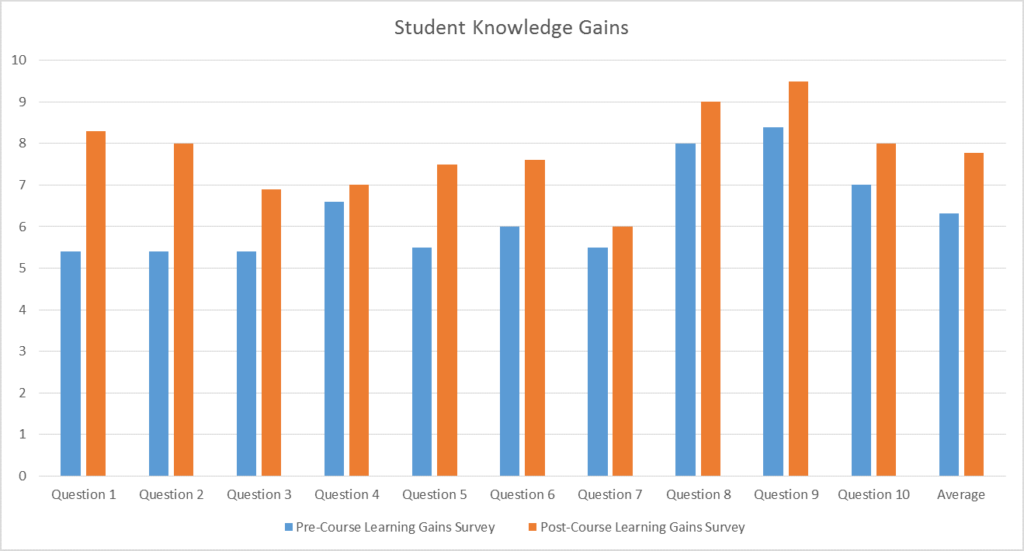Regina Feldman, an ICNC High School Curriculum Fellow, developed, offered and moderated a course on the introduction to civil resistance in 2016 as part of the ICNC High School Curriculum Fellowship. As the results from course evaluations show, students found the course to be extremely beneficial and valuable for their education.
The information featured below was submitted as part of the fellowship requirement that, among others, included creating a detailed course proposal, developing curriculum content, designing evaluation tools, selecting participants and extensive moderation throughout the course.
Learn more by clicking on the topic links:
About the Curriculum Fellow
Course Abstract
Learning Gains Survey Results
 Regina Feldman currently teaches IB Twentieth Century World History and Theory of Knowledge at the Montessori High School at University Circle in Cleveland, Ohio. She taught the previous year at the Affiliated High School of Peking University in Beijing, China. Regina Feldman holds a Master of Philosophy in Ethnology, Human Biology and Communication Theory from the University of Vienna, Austria, a Master of Arts in Medical Anthropology and a Ph.D. in Cultural Anthropology from Case Western Reserve University, which were both earned as a Fulbright Scholar. She also earned a Montessori Certificate in Adolescent Studies and is IB-trained in History, Theory of Knowledge, and Extended Essay. In addition to teaching humanities at MHS, Regina Feldman functions as a Montessori Advisor and Curriculum Trainer and has helped build MHS as a Curriculum Developer, Coordinator, and Documenter since the school’s inception in 2008. She is an avid traveller, yoga practitioner, runner, and cook.
Regina Feldman currently teaches IB Twentieth Century World History and Theory of Knowledge at the Montessori High School at University Circle in Cleveland, Ohio. She taught the previous year at the Affiliated High School of Peking University in Beijing, China. Regina Feldman holds a Master of Philosophy in Ethnology, Human Biology and Communication Theory from the University of Vienna, Austria, a Master of Arts in Medical Anthropology and a Ph.D. in Cultural Anthropology from Case Western Reserve University, which were both earned as a Fulbright Scholar. She also earned a Montessori Certificate in Adolescent Studies and is IB-trained in History, Theory of Knowledge, and Extended Essay. In addition to teaching humanities at MHS, Regina Feldman functions as a Montessori Advisor and Curriculum Trainer and has helped build MHS as a Curriculum Developer, Coordinator, and Documenter since the school’s inception in 2008. She is an avid traveller, yoga practitioner, runner, and cook.
Course Title: Rights and Protests: The American Civil Rights Movement and South Africa
High School: Montessori High School at University Circle, Ohio
Abstract: This course explores struggles for rights and freedoms through two case studies, the study of the Civil Rights Movement in the United States between 1954 and the passing of the Civil Rights Act in 1965 and the study of protests against Apartheid in South Africa, beginning with the election of the National Party in 1948 and ending with first democratic general elections in 1994. Students explore the nature of discrimination, methods of nonviolent resistance and the importance of leadership and organizations or parties in civil society. This course is driven by inquiry: every week, students spend time in “Archive”, using a variety of sources – written, digital, visual –to respond to a weekly Guiding Question and build timelines to trace the evolution of rights and protests in both countries. Work in the Archive will be supported by key lessons, Socratic seminars, academic debate, documentaries, and playing of the strategic game People Power. IB-style research papers, annotated bibliographies, and critical memos, class, seminar, and debate preparation and participation are formatively and cumulatively assessed. The course closes with a Colloquium on the Big Guiding Question about the effectiveness of nonviolent resistance actions for long-term positive societal change.
Learning Gains Survey (LGS) Results:
The LGS aims to measure knowledge gains among course participants. Participants take the Pre-Course Survey at the beginning of the course and take an identical survey (Post-Course) at the end of the course. Included below are the graphed responses to the questions from the Pre-Course and Post-Course Survey showing the percentage that chose the correct answer and the percentage that chose the incorrect answer.
Learning Gains Survey Results Explained:
As you can see in the graph above, the majority of students reported having low levels of familiarity with various civil resistance struggles and tactics when completing the Pre-Course LGS at the start of the course. The average pre-score was 6.3%. However, by the time students completed the Post-Course LGS, at the end of the course, they reported much higher levels of familiarity with general civil resistance knowledge. At the end of the course the average score was 7.8%. The largest knowledge gains were in questions 1, 2, 5, and 6.
Learning Gains Survey Answer Key:
The following questions were graded on a scale of 1 to 10, with 1 indicating little to no knowledge and 10 indicating a lot of knowledge.
Learning Gains Survey Questions:
1. On a scale of 1-10, please circle the number that best represents your current knowledge of civil resistance or nonviolent movements.
2. On a scale of 1-10, identify your comfort level in speaking to others about civil resistance or nonviolent movements.
3. On a scale of 1-10, select the number that best represents your view that revolutions against brutal regimes can succeed ONLY if revolutionaries retain the option to use violent means.
4. On a scale of 1-10, select the number that best represents your view that protests, marches, and demonstrations are the ONLY civil resistance methods.
5. On a scale of 1-10, select the number that best represents your view on how successful you think civil resistance campaigns against repressive states have been in the past.
6. On a scale of 1-10, select the number that best represents your view that movements that face repression must fail.
7. On a scale of 1-10, select the number that best represents your view that in order to be successful nonviolent movements must receive support from external actors, have access to the Internet, or face a regime that is weak and divided.
8. On a scale of 1-10, select the number that best represents your view about how important you think strategic planning is in a successful civil resistance movement.
9. On a scale of 1-10, select the number that best represents your view about how important you think participation is in a successful civil resistance movement.
10. On a scale of 1-10, select the number that best represents your view about how important you think nonviolent discipline is in a successful civil resistance movement.
